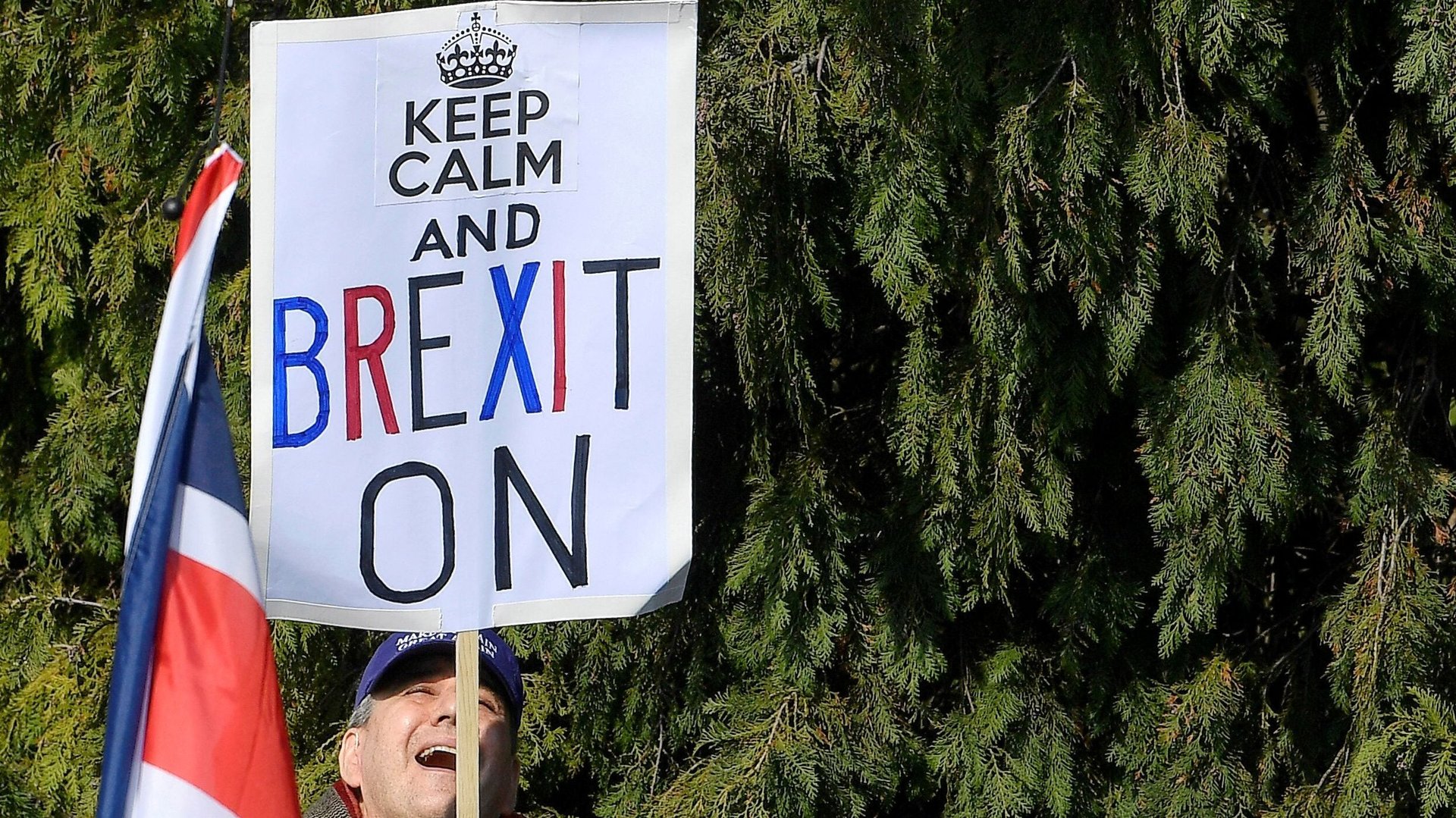Will Brexit actually happen? It’s anybody’s guess now
The UK Parliament shot down prime minister Theresa May’s Brexit deal for a third time today (March 29), with 286 voting for and 344 against. It’s not as bad a defeat as the last time around, when MPs rejected the deal by a margin of 149 votes.


The UK Parliament shot down prime minister Theresa May’s Brexit deal for a third time today (March 29), with 286 voting for and 344 against. It’s not as bad a defeat as the last time around, when MPs rejected the deal by a margin of 149 votes.
“The implications of the House’s decision are grave,” May said later. “Mr. Speaker, I fear we are reaching the limits of this process in this House. This House has rejected no deal. It has rejected no Brexit. On Wednesday it rejected all the variations of the deal on the table.”
The opposition Labour Party leader Jeremy Corbyn, meanwhile, called again for a general election and for May to resign as prime minister.
Brexit was scheduled to take place today, but the date had earlier been moved back to April 12. The UK has two weeks to take another course of action to avoid a chaotic no-deal exit, which remains the default course.
It is up to May to seek a longer delay. But the EU has previously said a further extension would be granted on condition the UK has a concrete plan to get out of the Brexit deadlock.
“A ‘no-deal’ scenario on 12 April is now a likely scenario. The EU has been preparing for this since December 2017 and is now fully prepared for a ‘no-deal’ scenario at midnight on 12 April,” the EU Commission said in a statement following the vote.
May had earlier vowed to quit as prime minister if Parliament came around and backed her unpopular deal. But Northern Ireland’s Democratic Unionist Party, which is propping up May’s minority government, said ahead of the vote that it would not support the agreement.
Jacob Rees-Mogg and Boris Johnson, two leading Brexiteers who had previously opposed May’s Brexit deal, were seen walking into the “ayes” corridor for the vote. Euroskeptics had earlier expressed concerns about “losing Brexit altogether,” with Johnson reportedly jostling to take over as prime minister should May’s deal go through.
Given today’s outcome, the prime minister should resign, said Steve Baker, deputy chair of the European Research Group, which represents the euroskeptic wing of May’s Conservative party. “This must be the final defeat for Theresa May’s deal,” he said.
On Monday, MPs are set to hold another round of so-called “indicative votes,” which are non-binding but useful to see if Parliament will back any way forward. The last round of indicative votes on Wednesday saw a permanent customs union with the EU come closest to passing, with 264 for to 272 against, followed by a second referendum on Brexit.
Correction: An earlier version of this article said a second Brexit referendum came closest to passing. Though it got the most votes, with 268 for to 295 against, the permanent customs union option lost by the smallest margin.